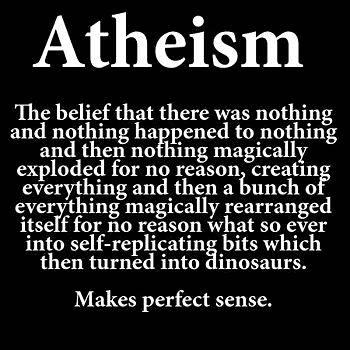JBeukema
Rookie
- Banned
- #101
It's clear to me that you have no actual knowledge on evolution, but through the magic of using outdated copied and pasted information you also don't understand, you feel you are in a position to draw conclusions! Fantastic.So many of our fellow board members have been generous with their advice, and explanations of the superiority of science, and reason, compared to faith
With respect to this truth, how is is possible to accept the theory of evolution as so much is based entirely on faith?
First off, if you want to discuss evolution, it's best to avoid material from the 1800s. Just because you don't understand the topic doesn't mean others need faith. It just means we're smarter than you in the subject.
I find it interesting that it's always the religious nuts who try to force faith upon others, even if it's not their own.
Religion does the same? Well yes, except one goes about it with evidence and fact, and the other goes about it with blind guessing and folk tales.
Again, the only ones who compare religion and science are people who don't understand science.
Sciencers? Really? You do realize how absolutely retarded that sounds, don't you? And I don't use that word lightly ever. No, no "sciencer" fails to realize that evolution only explains differences between and within species. That's because THAT'S ALL EVOLUTION DOES. It has nothing to do with the origin of life itself. Seems to me that "religioners" fail to realize that. Similarly, learning how to drive a car has nothing to do with learning how to manufacture a car from scratch. They are two completely separate concepts in the same field.
I hope you realize that poor excuse for a rebuttal came from this:

See above regarding evolution to have nothing to do with the origin of life.José;3127868 said:The origin of life remains to this day one of the biggest Achiles' heel in evolutionary theory.
Who else would like to look like they have no clue what they're talking about?
Your post begins with a HUGE error.....PC has no desire to DISCUSS evolution as proven by the fact that she has not responded to any post which refutes her absurd claims. Instead of discussing anything, she is only responding to posters who agree with her
She doesn't want to discuss evolution because she knows she doesn't know what she's talking about. Thats why she always cuts and pastes her arguments; She's too ignorant to express an idea using her own words
PC's the best troll here




